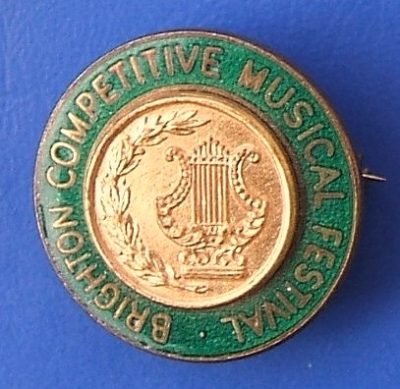
The Brighton Competitive Musical Festival was founded in 1924 by the Mayor of Brighton, Alderman Milner Black, and was organised for many years by violin teacher Lewis Mennich.
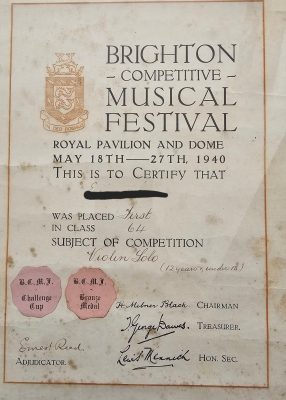
For several decades the Festival was held on the Royal Pavilion Estate, including in The Dome concert hall, and the Music Room (shown left) and the William IV Room in the Royal Pavilion. Several of those currently involved in Springboard recall playing in these venues.
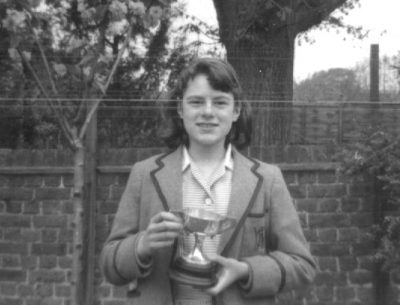
The Concerto competition was held in The Dome with an orchestra comprised of local players. Many Brighton and Hove schools entered choirs and musical ensembles. June Ingleton, who was a member of the Piano Committee from 1971 until recently, has many memories of the wide range of classes on offer 50 years ago.
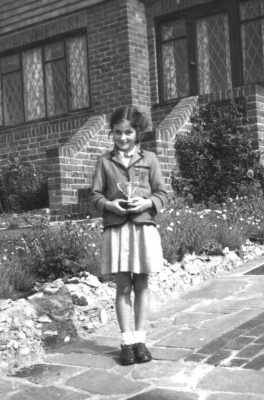
During the 1980s the Borough of Hove also gave financial support and the Festival added ‘& Hove’ to its name. But in the early 1990s both councils withdrew their grants and the Festival had to find a new home – in reality, several different homes over the years.
The Festival by now covered the disciplines of Drama and Dance, as well as Instrumental sections and Singing, and in the 1990s was re-branded as Springboard and registered as a charity. In 2010 it was recognised that the Dance section needed a larger venue than Brighton could provide and, along with Musical Theatre, it formed the Sussex Festival. Meanwhile, Speech & Drama, Classical Singing, Guitar, Piano, Strings, and Woodwind & Brass continued as Springboard, based in Brighton & Hove.
The Festival has, over the years, seen performances by thousands of young people who have benefited from the confidence it has given them. Some, such as Howard Blake, Lesley Manville, Jessica Hynes, Brenock O’Connor, Laura van der Heijden, have gone on to professional careers in the performing arts, and several have publicly acknowledged the opportunity Springboard gave them to hone their performance skills. More recently, Berniya and Riya Hamie have been delighting audiences as a duo, and as part of the award-winning Astatine Trio.
Over the years we have introduced opportunities for adult performers to receive feedback and support from our professional adjudicators.
From 2010 until 2020 Springboard took place exclusively in Brighton & Hove High School (now Brighton Girls) over four weekends in March. In 2021, we responded to the constraints of Covid-19 by running a successful ‘virtual festival’, to which we welcomed people from all over the country. Since 2022, a change in circumstances has led us to seek a wider range of venues across the city.
We are continually reassessing the opportunities we offer our performers, and in recent years have widened the choice of non-competitive classes in the music sections. Our aim is to provide a welcoming environment in which performers will feel comfortable and supported.
Festivals such as ours rely heavily on volunteers – those who steward on the day, the members of the section committees who choose the adjudicators, review the syllabuses and run the classes, and the trustees responsible for ensuring that Springboard meets its charitable aims and operates within its financial limits.
And, in common with all other arts organisations, we rely on donations to keep going. We are only here today because of the support over the years from generous individuals who recognise the importance of providing a platform on which performers of all ages can share their talent.
